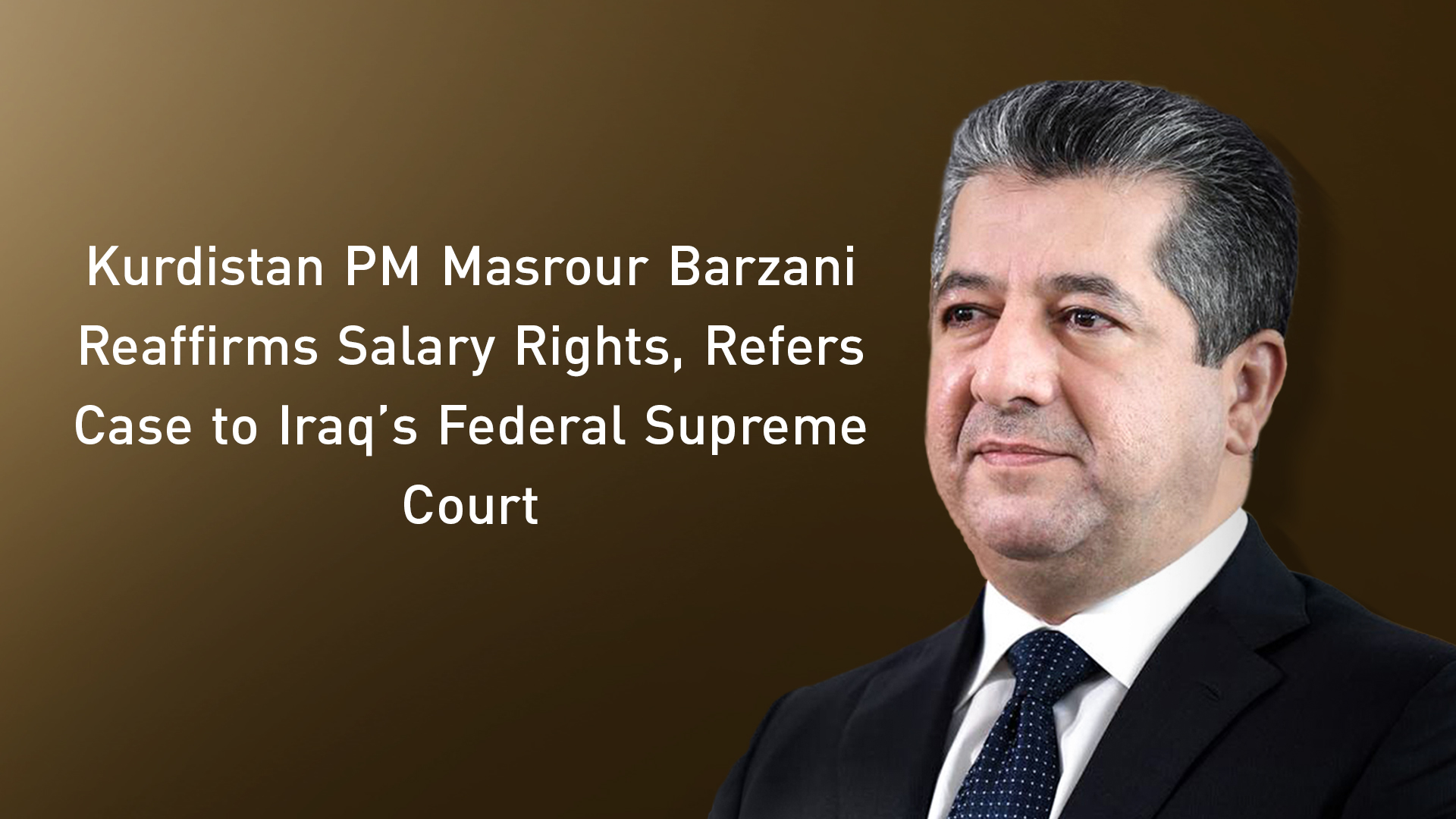Kurdistan PM Masrour Barzani Reaffirms Salary Rights, Refers Case to Iraq’s Federal Supreme Court
“Two days ago, I formally submitted a letter to the Federal Court, and we are now awaiting a ruling. We hope the court will deliver a decision in favor of the people of Kurdistan and public employees in the Region,” PM Barzani stated.

ERBIL (Kurdistan24) — Kurdistan Region Prime Minister Masrour Barzani on Wednesday reaffirmed the government's commitment to resolving the salary crisis, describing it as a fundamental right of the people and not a privilege, and revealed he has referred the case to Iraq’s Federal Supreme Court.
Speaking during a weekly cabinet meeting, Barzani emphasized that the issue of salaries remains the most pressing concern for his administration.
“Two days ago, I formally submitted a letter to the Federal Court, and we are now awaiting a ruling. We hope the court will deliver a decision in favor of the people of Kurdistan and public employees in the Region,” Barzani stated.
The Prime Minister reiterated that salaries are not only a financial matter but a legal and moral obligation to the citizens. “It is unjust to deprive people of their income,” he said, stressing that the legal action was necessary to find a sustainable resolution.
The cabinet session, chaired by Prime Minister Barzani, also covered several key agenda items. According to a press release from the Department of Media and Information, the first segment of the meeting included a detailed discussion on the latest developments in the region, including security, military, and political challenges, and their implications for the Kurdistan Region.
Over the past several years, Baghdad has repeatedly delayed or outright halted the transfer of the KRG’s share of the federal budget—measures widely criticized as unconstitutional and politically motivated.
According to the Iraqi constitution, the Kurdistan Region is entitled to a fair and proportionate share of the federal budget, based on its population, which has typically hovered around 12.67% of total federal expenditures. However, this allocation has frequently been withheld or weaponized by successive federal administrations, often for political reasons.
This pattern of financial pressure has had dire consequences for millions of Kurdish citizens. Public sector workers—including teachers, medical personnel, police officers, and civil servants—have gone months without receiving full or regular salaries. These actions have been widely condemned by Kurdish officials and civil society as collective punishment and a breach of the constitutional guarantees designed to protect the rights and dignity of Iraq’s diverse populations.
The suspension of salaries remains a flashpoint in Erbil-Baghdad relations and a source of immense frustration and hardship for Kurdish citizens. Many view it as part of a broader strategy by the federal government to erode Kurdish autonomy through economic subjugation—a move that not only threatens internal stability but also undermines Iraq’s federal democratic foundations.